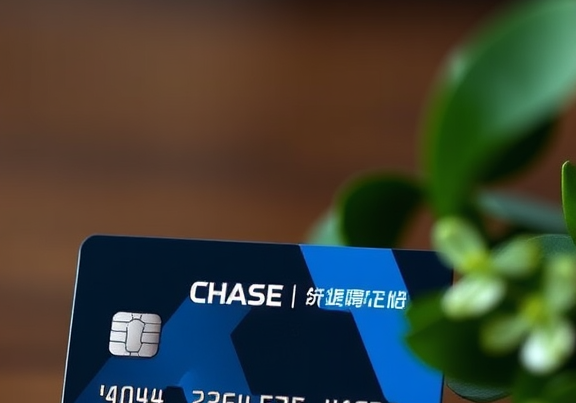Debt Management Strategies: How the Quicksilver Card Can Help You Reach Your Financial Goals
Managing debt can be a daunting task, leaving many feeling overwhelmed and uncertain about their financial future. Fortunately, having the right tools can change everything. One such tool is the Quicksilver Card, a credit card that not only offers rewards but also plays a significant role in helping you manage your debt more effectively. Understanding how to leverage this card can support you in achieving your financial goals.
Understanding the Quicksilver Card
The Quicksilver Card from Capital One is designed for those who want to earn rewards without the hassle of complicated tiers or limits. With 1.5% cash back on every purchase, it’s straightforward and rewarding. Here’s how it can be a game-changer in your debt management strategies:
1. Simplified Rewards Structure
Many credit cards come with complicated rewards systems that can make it hard to understand how to maximize your benefits. The Quicksilver Card eliminates this confusion:
- Earn 1.5% cash back on all purchases.
- No rotating categories to track.
- No limit on how much cash back you can earn.
With this simplicity, you can focus on your spending habits and manage your expenses more effectively while enjoying the rewards you earn.
2. Pay Off High-Interest Debt
Using the Quicksilver Card to manage your debts can be advantageous. You can consolidate your high-interest debts onto the card, especially when you take advantage of promotional offers, like 0% APR on balance transfers for a limited time. This can save you money in interest and help you pay off your debt faster:
- Transfer high-interest balances to the card to reduce interest costs.
- Focus all your repayments on the Quicksilver Card to pay it down efficiently.
By transferring your high-interest debt, you can prioritize payments and work towards a debt-free lifestyle.
3. Utilize Cash Back Wisely
The cash back rewards you earn can be a valuable tool for debt management. You might consider using your cash back rewards strategically:
- Apply cash back directly to your card balance to pay down debt.
- Save cash back for emergency expenses rather than using credit.
- Invest cash back into savings to create a financial buffer.
This approach not only maximizes the use of your card but also encourages healthy financial habits.
4. Budgeting and Tracking Expenses
Having a credit card like the Quicksilver Card allows you to track your expenses easily. Each transaction is recorded, making it simpler to evaluate where your money is going:
- Use the mobile app to categorize your spending.
- Set monthly budgets based on your cash flow and expenses.
- Identify areas where you can cut back to allocate more towards debt repayment.
This detailed tracking helps you stay aware of your financial health and adjust your spending accordingly.
5. Build Your Credit Score
Another crucial aspect of debt management is maintaining a solid credit score. The Quicksilver Card can help you improve your credit score by allowing you to:
- Make timely payments.
- Keep your credit utilization low.
- Benefit from potential credit increases over time.
A higher credit score can lead to better loan terms in the future, which is beneficial when seeking to refinance existing debt.
6. Set Financial Goals
The Quicksilver Card also empowers you to set and stick to short-term and long-term financial goals. By leveraging its features, you can:
- Establish realistic repayment timelines for your debts.
- Save cash back rewards toward a specific goal.
- Develop a plan for improving your financial literacy.
As you work on these goals, you will feel more in control of your finances and be motivated to stick to your plans.
In the world of personal finance, leveraging the right tools can make all the difference. The Quicksilver Card offers a unique combination of simplicity, rewards, and effective debt management strategies that can help you reach your financial goals. By utilizing this card wisely, you can pave the way toward a healthier financial future.
The Benefits of Credit Cards in Managing Personal Debt Effectively
Managing personal debt can feel overwhelming, but understanding how to leverage credit cards effectively can make a significant difference in your journey to financial freedom. When used wisely, credit cards can be powerful tools for building good credit and improving your debt management strategy. Here’s how they can benefit you.
Convenience and Accessibility
Credit cards offer a convenient way to make purchases without needing physical cash. This flexibility allows you to manage your expenses and be more organized with your budget. Here are some pros of using credit cards:
- Instant Purchase Power: Credit cards let you buy what you need immediately, which is useful in emergencies.
- No Carrying Cash: You don’t have to worry about losing cash or running out of it while shopping.
- Online Transactions: Credit cards are essential for online shopping, allowing you to manage payments for various subscriptions or services easily.
Building and Improving Credit Score
Your credit score is a crucial factor in your financial life. A higher score can lead to better interest rates and loan options in the future. Using a credit card strategically can boost your credit score. Here’s how:
- Timely Payments: Making on-time payments for your credit card encourages a positive payment history.
- Credit Utilization: Keeping your credit utilization ratio below 30% shows lenders that you are responsible with borrowed money.
- Long-Term Accounts: Keeping credit accounts open for a long time contributes to a more extended credit history, improving your score.
Rewards and Cash Back Opportunities
Many credit cards offer rewards programs, including cash back, travel points, or discounts. This feature can be highly advantageous if you use your card regularly. Some of the benefits include:
- Cash Back: You earn a percentage of your purchases back, which can offset monthly expenses.
- Travel Rewards: Accumulate points that can be redeemed for flights, accommodations, and more.
- Special Offers: Some cards provide exclusive deals for specific merchants or categories like groceries, gas, and dining.
Debt Consolidation Options
If you have high-interest debts, transferring these balances to a credit card with a lower interest rate can help you save money on interest payments, making it easier to manage your debt. Consider these strategies:
Ready to earn effortless rewards? Click here to unlock 1.5% cash back on every purchase with the Capital One Quicksilver card!
- Balance Transfers: Transfer higher-interest debts to a credit card offering 0% interest for an introductory period.
- Fixed Monthly Payments: Credit cards can offer the ability to know your fixed monthly payment, aiding budgeting efforts.
- Reward for Paying Off Balance: Keeping your balance low or paying it off completely might even earn you additional rewards!
Emergency Financial Buffer
Life can bring unexpected expenses, from medical bills to car repairs. In these situations, a credit card can provide a necessary cushion. The benefits include:
- Immediate Access to Funds: Credit cards can cover expenses you can’t manage with your current cash flow.
- Protection Against Fraud: Credit card companies offer strong consumer protections, safeguarding your spending.
- Grace Period: You might have some time before your payment is due, allowing you to budget for repayments without immediate financial strain.
Educational Resources and Financial Management Tools
Many credit card companies offer robust online platforms that help track spending, analyze your budget, and provide educational resources for better financial management. Here’s what you can gain:
- Spending Alerts: Receive notifications when you reach spending limits or approach your budget goals.
- Expense Categorization: View your spending patterns to identify areas for cost-saving opportunities.
- Financial Planning Tools: Access calculators and other resources to help plan for future expenses.
Understanding the benefits of credit cards can empower you to manage your personal debt more effectively. When used responsibly, they can be an excellent resource, offering convenience, rewards, and financial management options. By making informed choices and establishing a healthy relationship with credit, you can work toward achieving your financial goals.
Conclusion
Navigating the world of personal finance can be challenging, especially when managing debt. However, leveraging tools like the Quicksilver Card can make this journey smoother. By implementing effective debt management strategies, you empower yourself to take control of your financial situation. The Quicksilver Card offers benefits that can aid in reaching your financial goals, such as cash back rewards and a straightforward approach to monitoring your spending. These features not only enhance your budgeting efforts but also create a pathway for you to reduce outstanding debts.
Credit cards can play an essential role in managing personal debt effectively. With responsible use, they can provide a buffer when unexpected expenses arise, preventing the cycle of debt from spiraling. The cash back rewards on the Quicksilver Card can also act as a small, yet significant, boost to your finances, providing extra cash that you can put toward paying down debt.
Ready to earn effortless rewards? Click here to unlock 1.5% cash back on every purchase with the Capital One Quicksilver card!
Using credit cards wisely aligns with a broader financial strategy aimed at clarity and improvement. Whether you are just beginning your journey or are well on your way to tackling debt, remember that every financial decision contributes to your end goal. By integrating the Quicksilver Card into your plan, you’re not just managing debt; you’re also shaping a healthier financial future for yourself. Embrace these tools and tactics with confidence, and you can pave the way toward achieving your financial aspirations.



